
AMONG THE ESTIMATED 500,000 archaeological and ethnographic objects in the collections of the American Museum of Natural History (AMNH), some 800 artifacts, including pots and stone tools, are from a site known as White House. This small village is tucked into a cliff alcove in northeastern Arizona's Canyon del Muerto and was inhabited by a farming community from approximately 1150 to 1300. In 2009, University of Arizona archaeologist Edward Jolie was in the museum's extensive Southwest collections looking through drawers holding objects excavated in the early twentieth century from White House when he came across something remarkable.
Jolie, who studies perishable artifacts, had come to the museum to examine textiles and basketry from New Mexico's Chaco Canyon, where a large cluster of settlements at the center of an important cultural network reached its zenith around 1100. While at the museum, he thought he would take advantage of the opportunity to survey perishable objects from other Southwestern sites which is how he found himself holding a two-foot-wide shield fashioned from sumac fiber basketry coils that had been discovered in 1925 and then sat unnoticed in the museum's collections for almost a century. "Basketry shields are incredibly rare in the archaeological record," says Jolie. "To that point, there were only three known from the entire Southwest." Based on his experience studying the previously identified examples, Jolie was confident the artifact from White House was a basketry shield.
Diese Geschichte stammt aus der July/August 2023-Ausgabe von Archaeology.
Starten Sie Ihre 7-tägige kostenlose Testversion von Magzter GOLD, um auf Tausende kuratierte Premium-Storys sowie über 8.000 Zeitschriften und Zeitungen zuzugreifen.
Bereits Abonnent ? Anmelden
Diese Geschichte stammt aus der July/August 2023-Ausgabe von Archaeology.
Starten Sie Ihre 7-tägige kostenlose Testversion von Magzter GOLD, um auf Tausende kuratierte Premium-Storys sowie über 8.000 Zeitschriften und Zeitungen zuzugreifen.
Bereits Abonnent? Anmelden
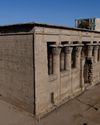
AN EGYPTIAN TEMPLE REBORN
By removing centuries of soot, researchers have uncovered the stunning decoration of a sanctuary dedicated to the heavens
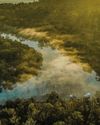
THE SHELL SEEKERS
How hunter-gatherers in northern Florida facing an uncertain future revived a powerful symbol of their past
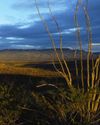
The Secrets of Porvenir
Remembering the victims of a 1918 massacre that shook a Texas border community
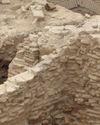
UNEARTHING ANELUSIVE EMPIRE
Archaeologists have discovered rare evidence of an enlightened medieval dynasty that ruled much of Central Asia
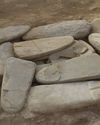
Ahead of Their Time
Excavations reveal the surprising sophistication of Copper Age villagers in southwestern Iran 6,000 years ago
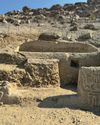
ORIGINS OF PERUVIAN RELIGION
While investigating looters' holes at the site of La Otra Banda in northern Peru's Zaña Valley, archaeologist Luis A. Muro Ynoñán of the Field Museum and the Pontifical Catholic University of Peru spotted carved blocks around seven feet below the surface.
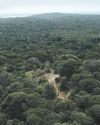
ISLAND OF FREEDOM
Many of the enslaved Africans sent to Brazil beginning in 1549 were from what is now Angola, where one of the most widely spoken languages was Kimbundu.
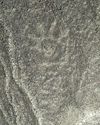
NAZCA GHOST GLYPHS
From the 1940s to the early 2000s, geoglyphs were discovered in the Nazca Desert of southern Peru depicting animals, humans, and other figures at the rate of 1.5 per year.
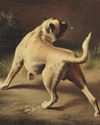
COLONIAL COMPANIONS
The ancestry of dogs in seventeenth-century Jamestown offers a window into social dynamics between Indigenous people and early colonists.
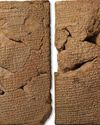
BAD MOON RISING
The British Museum houses around 130,000 clay tablets from ancient Mesopotamia written in cuneiform script between 3200 B.C. and the first century A.D.